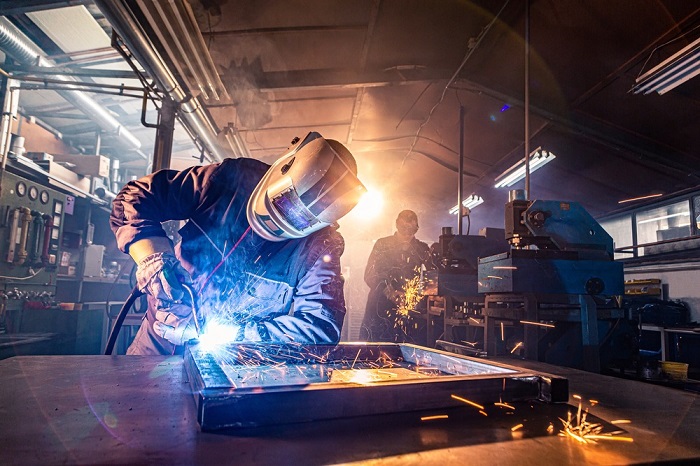What is a Welder?

A welder specializes in joining metal parts using various welding techniques. This involves melting the edges of two or more metal pieces and fusing them to create a strong bond. Welders work with different metals, including steel, aluminum, and stainless steel, utilizing methods like arc welding, gas welding, and resistance welding.
Key Responsibilities of a Welder
- Welding Techniques: Proficient in methods such as:
- Shielded Metal Arc Welding (SMAW)
- Gas Metal Arc Welding (GMAW)
- Flux-Cored Arc Welding (FCAW)
- Gas Tungsten Arc Welding (GTAW)
- Submerged Arc Welding (SAW)
- Reading Blueprints: Interpret technical drawings and specifications to understand project requirements, welding symbols, and dimensions.
- Material Preparation: Prepare materials by cleaning, cutting, and shaping metal parts to specified dimensions.
- Equipment Setup: Set up and maintain welding equipment, ensuring everything is in good working condition and calibrated.
- Welding Execution: Perform the actual welding by applying heat to join metal parts, controlling parameters like voltage and amperage for optimal quality.
- Quality Control: Inspect welds for defects, using visual inspection and non-destructive testing methods to ensure they meet standards.
- Safety Compliance: Follow safety protocols, wear appropriate protective gear, and maintain a safe working environment.
- Maintenance and Repair: Troubleshoot and maintain welding equipment to ensure reliability.
- Collaboration: Work with supervisors, engineers, and other tradespeople, communicating effectively to coordinate tasks.
- Continuous Learning: Stay updated with the latest techniques, materials, and safety practices through training and certifications.
Types of Welders
There are various specializations within welding, each focusing on different techniques and industries:
- Structural Welder: Works in construction, joining metal components for buildings and infrastructure.
- Pipe Welder: Specializes in welding pipes for industries like oil and gas.
- Underwater Welder: Performs welding tasks underwater, often in offshore or marine settings.
- Pressure Vessel Welder: Fabricates and assembles pressure vessels used in various industries.
- Aerospace Welder: Works with components used in aircraft manufacturing, requiring high precision.
- Automotive Welder: Involves in vehicle production or repair, welding various automotive parts.
- Boilermaker: Focuses on the fabrication and maintenance of large metal structures, including boilers.
- Robotic Welding Technician: Operates and maintains robotic welding systems in manufacturing.
- Welding Inspector: Ensures weld quality and compliance with standards through inspections.
- Welding Educator/Trainer: Teaches welding skills and safety practices in educational settings.
Conclusion
Welding is a vital trade with diverse opportunities across various industries. Skilled welders are essential for ensuring the integrity and quality of metal structures, contributing significantly to construction, manufacturing, and repair processes.
Information provided by CareerOnlines, LLC and other sources.
Sections of this page includes information from the O*NET 29.0 Database by the U.S. Department of Labor, Employment and Training Administration (USDOL/ETA). Used under the CC BY 4.0 license.
CareerOnlines, LLC has modified all or some of this information. USDOL/ETA has not approved, endorsed, or tested these modifications.